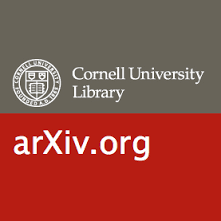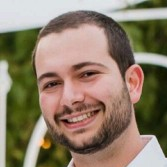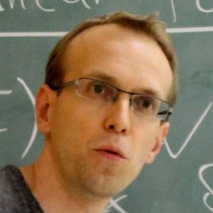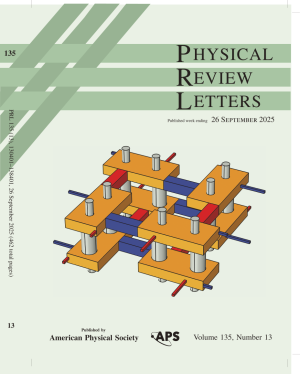-
2 Nov 2025 • Preprint • arXiv
Hyperentanglement in Nanophotonic Systems with Discrete Rotational Symmetry
AbstractWe propose a scheme to generate hyperentanglement between photons carrying angular momen- tum in nanophotonic systems with discrete rotational symmetry. Coupling free-space photons into surface plasmon polaritons by a polygonal-shaped grating restricts the basis of the generated near-field modes to a finite set, thus creating a new mechanism for spatial mode entanglement
… show more -
31 Oct 2025 • Preprint • arXiv
Model-independent determination of nuclear charge radii from Li-like ions
AbstractWe demonstrate that recent advances in QED theory of Li-like ions [V. A. Yerokhin et al., Phys. Rev. A 112, 042801 (2025)] enable determinations of absolute nuclear charge radii for heavy elements. By incorporating constraints derived from electron-scattering data, we obtain radii that are independent of the assumed model of the nuclear charge distribution. Our approach
… show more -
23 Oct 2025 • Preprint • Research Square
m-Plane GaN Split-Well Direct-phonon Terahertz Quantum Cascade Laser
AbstractIn this work, we have theoretically investigated GaN-based terahertz quantum cascade laser (THz QCL) structure, modeled for growth along the non-polar m-plane. The design employs the split-well direct-phonon (SWDP) scheme and is analyzed using the Non-equilibrium Green’s Function (NEGF) approach. The proposed design successfully addresses key limitations identified in
… show more -
14 Oct 2025 • Journal Article • Physical Review Letters
Spontaneous Emission from Electronic Metastable Resonance States
AbstractWe demonstrate that calculating the spontaneous emission decay rate from metastable resonance states (states with finite lifetimes embedded in the continuum) requires considering transitions to all continuum states, not just to lower states. This holds even when the lifetimes of the metastable states are very long and might be effectively considered as bound states in
… show more -
14 Oct 2025 • Journal Article • Physical Review Letters
Two-Dimensional Topological Edge States in Periodic Space-Time Interfaces
AbstractTopological edge states in systems of two (or more) dimensions offer scattering-free transport, exhibiting robustness to inhomogeneities and disorder. In a different domain, time-modulated systems, such as photonic time crystals, offer nonresonant amplification drawing energy from the modulation. Combining these concepts, we explore topological systems that vary
… show more -
7 Oct 2025 • Journal Article • Physical Review Research
BlockBP decoder for the surface code
AbstractWe present a new decoder for the surface code, which combines the accuracy of the tensor-network decoders with the efficiency and parallelism of the belief-propagation algorithm. Our main idea is to replace the expensive tensor-network contraction step in the tensor-network decoders with the blockBP algorithm—a recent approximate contraction algorithm, based on belief
… show more -
2 Oct 2025 • Preprint • arXiv
Erdos-Turan photonic Ising machines with record-high coupling resolution
AbstractIsing machines have emerged as promising platforms for efficiently tackling a wide range of combinatorial optimization problems relevant to resource allocation, statistical inference and deep learning, yet their practical utility is fundamentally constrained by the coarse resolution of spin-spin couplings (Jij). Current implementations, relying on direct modulation of
… show more -
1 Oct 2025 • Journal Article • Physical Review Research
Cabibbo-Kobayashi-Maskawa unitarity deficit reduction via finite nuclear size
AbstractWe revisit the extraction of the
… show more -
28 Sep 2025 • Preprint • arXiv
From Quasiperiodicity to a Complete Coloring of the Kohmoto Butterfly
AbstractThe spectra of the Kohmoto model give rise to a fractal phase diagram, known as the Kohmoto butterfly. The butterfly encapsulates the spectra of all periodic Kohmoto Hamiltonians, whose index invariants are sought after. Topological methods - such as Chern numbers - are ill defined due to the discontinuous potential, and hence fail to provide index invariants. This
… show more -
26 Sep 2025 • Journal Article • Physical Review Letters
Probing New Hadronic Forces with Heavy Exotic Atoms
AbstractWe explore the potential of precision spectroscopy of heavy exotic atoms where electrons are substituted by negative hadrons to detect new force carriers with hadronic couplings. The selected transitions are unaffected by nuclear contact terms, thus enabling highly accurate calculations using bound-state QED, provided that the nuclear polarization is under control
… show more


























